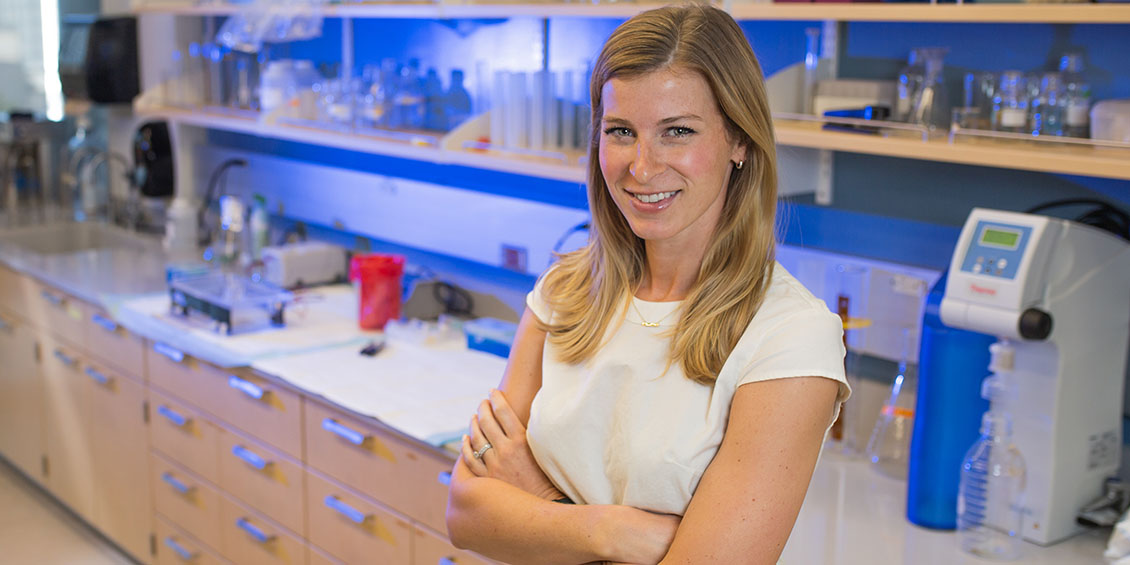Research News
Tracking the Path of Emerging Resistance
ACCP Foundation Supports Gonzales-Luna, Garey Study on Resistance Role of Infectious Bacteria in Treatment Failures with First-line Antibiotic Vancomycin
January 19 — Concerned about increasing rates of treatment failure with the frontline antibiotic vancomycin for multidrug-resistant Clostridioides difficile infections (CDI), UH College of Pharmacy infectious diseases researchers are studying whether the bacterium has outsmarted yet another therapeutic agent thanks to the expression of a common but normally repressed resistance mechanism in its genes.
UHCOP Research Assistant Professor Anne J. Gonzales-Luna, Pharm.D., BCIDP, has received a $40,000 2021 ACCP Foundation Futures Grant to investigate the prevalence of expression of a vancomycin-specific resistance gene (vanG) in clinical isolates of Clostridioides difficile (C. difficile). As part of the grant project, Gonzales-Luna is working under the mentorship of Professor and internationally recognized CDI expert Kevin W. Garey, Pharm.D., FASHP, FIDSA, FCCP, BCIDP.
CDI was traditionally considered a health care-acquired infection, but recent studies by Gonzales-Luna, Garey and other members of their lab have revealed the bacteria’s wide-ranging living environment – from park handrails to shoe soles. Classified by the U.S. Centers for Disease Control as an emerging public health threat, CDI is characterized by severe gastrointestinal distress and life-threatening diarrhea-induced dehydration with symptoms often recurring long after initial treatment. CDI affects more than half a million patients in the U.S. annually, with CDI-associated deaths in excess of 12,000 each year.
Hampering the ability of researchers and clinicians to accurately diagnosing CDI is the fact that the diagnostic method – detection of toxins in the stool – is not routinely subjected to susceptibility testing to antimicrobial in clinical microbiology labs. Gonzales-Luna and Garey recently identified several clinical isolates with vanG expression, but it remains unknown how common this expression has become in what has been traditionally believed to be a repressed gene in C. difficile.
The key question the research will answer is if CDI is developing resistance to vancomycin, which may contribute to an increasing number of vancomycin treatment failures as response rates to the drug over the past 15 years seem to suggest. In the study, the investigators will focus on a specific hypervirulent strain of C. difficile known as ribotype 027 (RT 027) that is associated with higher rates of death, colon surgery and poor clinical response rates to vancomycin and another commonly used antibiotic, metronidazole. Gonzales-Luna said their previous research indicates metronidazole resistance is more common in RT 027, and they suspect they’ll see similarly increased rates of vancomycin resistance and expression of vanG in RT 027.
"I would hope to find that there is no resistance, and that our clinical assumptions are all valid," Gonzales-Luna said. "That negative finding would be good news. It would be interesting, however, if we found that there is some resistance. Finding nothing is good for a clinician, yet finding results is good from the researcher’s vantage point. Researchers would be intrigued by the resistance, even if it’s a negative element of treatment."
